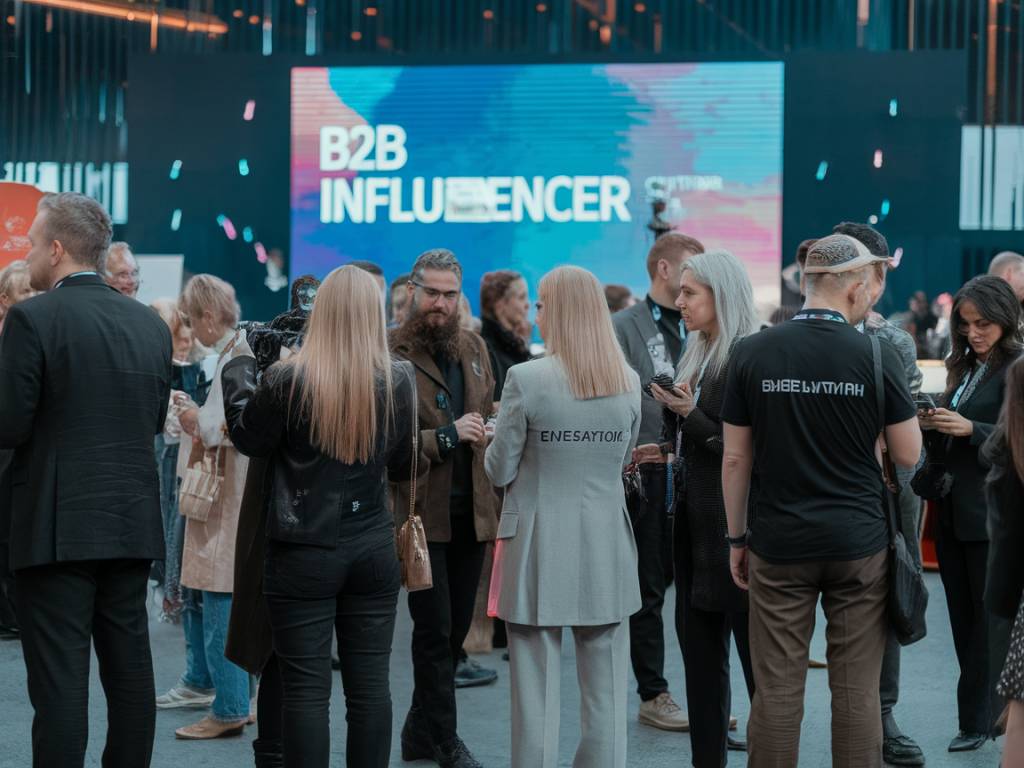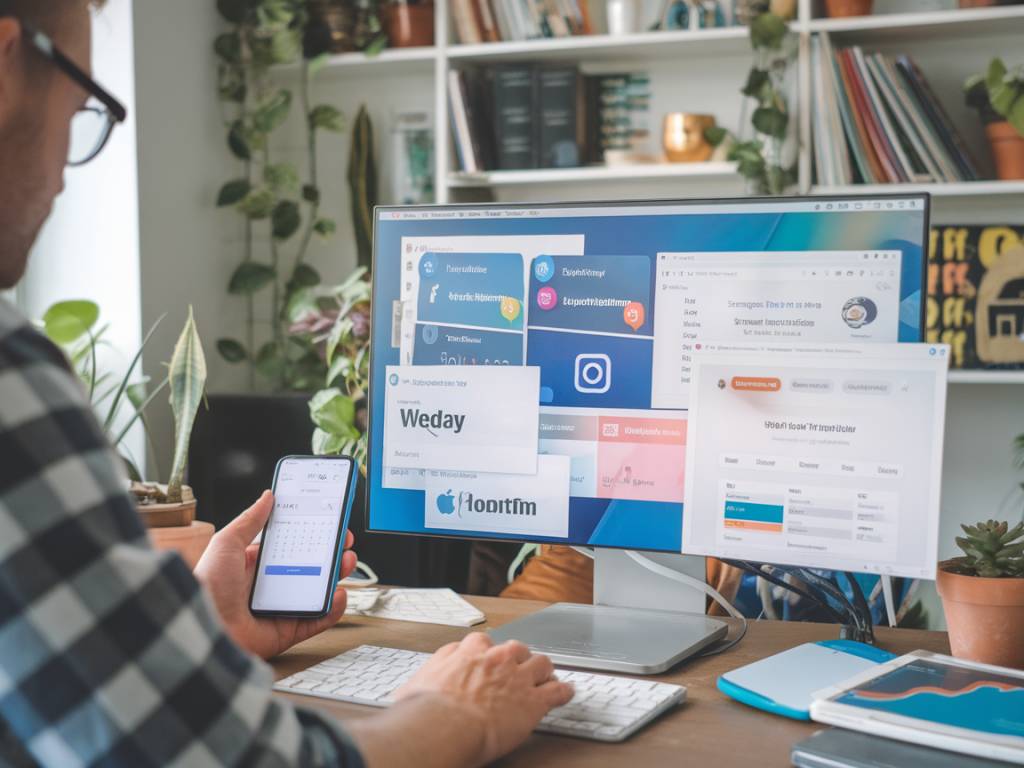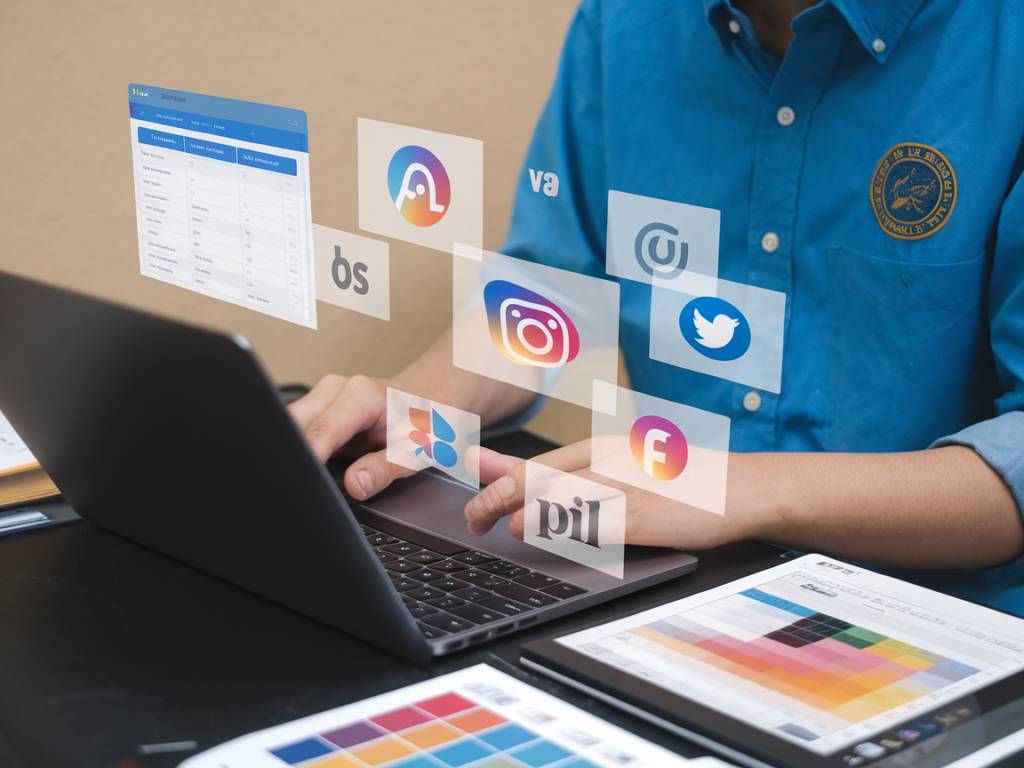In recent years, influencer marketing has taken the business-to-business (B2B) world by storm. Once considered primarily a B2C tool to reach younger audiences, influencer marketing is now carving a critical role in professional sectors, helping B2B brands connect with decision-makers and establish trust in niche markets. But how exactly does this translate into tangible results for businesses, and what makes it a strategy worth exploring? Let’s dive in.
What is Influencer Marketing in the B2B Context?
For those familiar with B2C influencer marketing, the concept in B2B sectors is similar—but with distinct nuances. B2B influencer marketing revolves around collaborating with thought leaders, industry experts, or trusted professionals who have significant sway within a specific business niche. Instead of promoting lifestyle products or consumer goods, these influencers focus on endorsing software solutions, consultancy services, or tech innovations that cater to organizational needs.
In this context, authenticity and expertise are key. Unlike flashy product promotions, B2B influencers drive value by sharing insights, hosting webinars, contributing to white papers, and creating case studies. It’s less about « salesy » pitches and more about fostering informed conversations that position your brand as a credible player in the space.
Why B2B Influencer Marketing Works
Trust plays a significant role in decision-making within the B2B arena. Let’s face it—building credibility with busy decision-makers isn’t easy, especially when your pitch is competing with hundreds of others. Here’s where influencers can step in to bridge the gap:
- Credibility through association: Engaging with well-respected figures in your industry helps boost your brand’s legitimacy, giving you an edge over competitors.
- Extended reach: Leveraging an influencer’s network allows you to tap into a curated audience of key players who are more likely to be interested in your offerings.
- Simplifying complex offerings: B2B solutions often involve intricate products or services, and influencers can use their expertise to break these down into easily digestible, relatable content.
- Building relationships: Unlike one-off ads, influencer campaigns often foster long-term connections, contributing to stronger brand affinity over time.
Real-World Examples of B2B Influencer Marketing Success
Let’s bring this concept to life with some tangible examples of B2B brands leveraging influencer marketing effectively:
- Adobe: Adobe enlisted respected business influencers and creative professionals to showcase real-world applications of its Creative Cloud software. By sharing success stories and best practices, the campaign resonated deeply with both decision-makers and end users in fields like marketing and design.
- LinkedIn: LinkedIn partnered with leading voices in digital marketing to create thought-provoking content showcasing the platform’s value for running professional campaigns. The use of actionable insights helped LinkedIn solidify its position as the go-to platform for B2B advertising.
- IBM: IBM collaborated with tech thought leaders to discuss emerging trends like artificial intelligence and cloud computing at major events. By inviting influencers to share their expertise, they created a ripple effect of trust and interest among enterprise clients.
How to Identify the Right Influencers
One of the biggest hurdles for B2B brands is identifying the right influencers. Unlike the B2C space, where follower count often takes precedence, the B2B world puts a premium on relevance, expertise, and audience alignment. Here’s how to get it right:
- Look for niche expertise: Prioritize influencers whose content aligns directly with your industry or niche. For example, a cybersecurity company should collaborate with IT specialists rather than general tech enthusiasts.
- Engagement over numbers: Don’t get caught up in the vanity metrics. Look for influencers with meaningful engagement and an audience comprising decision-makers and professionals.
- Evaluate their content: Analyze an influencer’s previous work to ensure their tone and style align with your brand. Authenticity is non-negotiable in B2B space!
- Use influencer platforms: Tools like Traackr, Klear, or Upfluence specialize in helping businesses discover and manage B2B influencers—saving time and effort in the process.
Crafting an Effective Influencer Engagement Strategy
Once you’ve identified the right influencers, it’s time to plan your collaboration. A scattergun approach won’t cut it in B2B influencer marketing. Instead, focus on intentional, value-driven interactions. A few pointers:
- Set clear objectives: Define measurable goals upfront. Do you want to generate leads? Drive webinar sign-ups? Improve brand awareness? Be specific.
- Offer value in return: Unlike B2C, where monetary compensation often suffices, many B2B influencers value access to insider information, exclusive product previews, or opportunities to co-create content.
- Experiment with formats: From podcast interviews to in-depth LinkedIn articles, don’t shy away from exploring diverse content types to amplify your message.
- Measure your ROI: Use analytics tools to track campaign performance and identify areas for improvement. Metrics like website traffic, social shares, and form submissions can provide valuable insights.
Challenges of B2B Influencer Marketing
While the potential of influencer marketing in B2B is undeniable, it’s not without challenges:
- Longer sales cycles: Convincing B2B decision-makers takes time. Patience is key when nurturing relationships through influencers.
- Finding niche influencers: Unlike B2C, where influencers are abundant, finding professionals with niche expertise requires effort and diligence.
- Budget considerations: Successful collaborations often require significant investment in time and resources, so proper financial planning is essential.
Final Thoughts
The B2B landscape is evolving, and influencer marketing is proving to be a powerhouse strategy for businesses aiming to build credibility, expand reach, and foster long-term relationships. While it’s not a quick fix or a one-size-fits-all solution, by collaborating with niche influencers, setting clear objectives, and valuing authenticity, your B2B brand can unlock immense potential.
So, is your company ready to explore the untapped possibilities of B2B influencer marketing? The answer might just redefine your approach to connecting with clients and decision-makers in 2023 and beyond.




